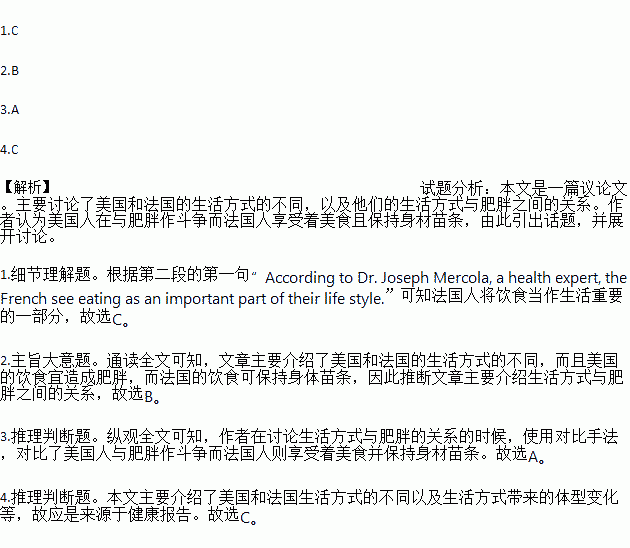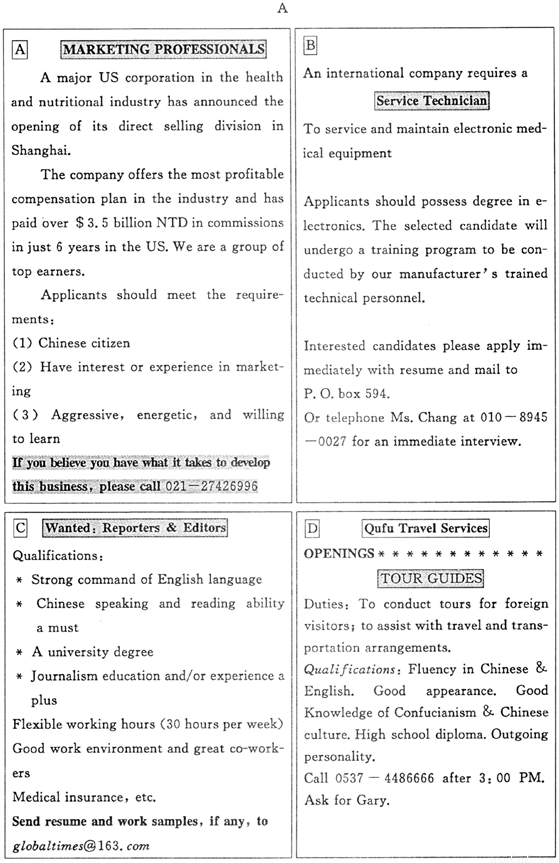题目内容
Why do Americans struggle with watching their weight, while the French, who consume(消耗) rich food, continue to stay thin? Now a research by Cornell University suggests how life style and decisions about eating may affect weight. Researchers concluded that the French tend to(往往,倾向于) stop eating when they feel full. However, Americans tend to stop when their plate is empty or their favorite TV show is over.
According to Dr. Joseph Mercola, a health expert, the French see eating as an important part of their life style. They enjoy food and therefore spend a fairly long time at the table, while Americans see eating as something to be squeezed(挤出) between the other daily activities. Mercola believes Americans lose the ability to sense when they are actually full. So they keep eating long after the French would have stopped. In addition, he points out that Americans drive to huge supermarkets to buy canned and frozen foods for the week. The French, instead, tend to shop daily, walking to small shops and farmers’ markets where they have a choice of fresh fruits, vegetables, and eggs as well as high-quality meats for each meal.
After a visit to the United States, Mireille Guiliano, author of French Women Don’t Get Fat, decided to write about the importance of knowing when to stop rather than suggesting how to avoid food. Today she continues to stay slim and rarely goes to the gym.
In spite of(尽管) all these differences, evidence shows that recent life style changes may be affecting French eating habits. Today the rate of obesity — or extreme overweight — among adults is only 6%. However, as American fast food gains acceptance and the young reject(拒绝) older traditions, the obesity rate among French children has reached 17% — and is growing.
1.In what way are the French different from Americans according to Dr. Joseph Mercola?
A. They go shopping at supermarkets more frequently.
B. They squeeze eating between the other daily activities.
C. They regard eating as a key part of their lifestyles.
D. They usually eat too much canned and frozen food.
2.This text is mainly the relationship between _________.
A. Americans and the French
B. life styl e and obesity
e and obesity
C. children and adults
D. fast food and overweight
3.The text is mainly developed _____ _____.
_____.
A. by contrast (对比) B. by space C. by process(变化过程) D. by classification(分类)
4.Where does this text probably come from?
A. A TV interview B. A food advertisement
C. A health report D. A book review(书评)
 口算能手系列答案
口算能手系列答案


 与) before winning the election.
与) before winning the election. sive attendee.
sive attendee.